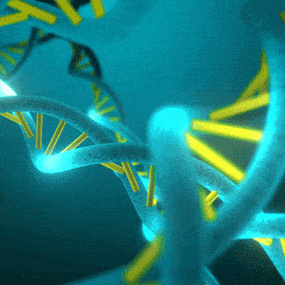
|

|
What is CRISPR?
Complex protein system capable of re-arranging genomes (DNA) by means of its Cas9 endonuclease (RNA guided, restriction enzyme) it has the capacity to be programmable and will be a major influence in the next decade or so.
Crispr has been used in trials to reduce the % of cancerous cells in mice from 99% to the lower 40s, all by sheer efficiency.
CRISPR - meme gif

CRISPR - video
CRISPR - what is it?
A new technology that is used to edit genes for better lives and happy bodies.
Hey dude, have you heard of CRISPR?
No, what is that?
What does "CRISPR" mean?
Someone that has good genetics (height, IQ, looks)
Mike: Ay yo, this basketball players 7 ft tall!!!
Robert: Yeah we call him CRISPR cause his parents did gene editing on him LUL
CRISPR - what does it mean?
"Clustered Regularly Interspaced Short Palindromic Repeats."
The word "CRISPR" is an acronym that stands for "Clustered Regularly Interspaced Short Palindromic Repeats." It was coined by Spanish microbiologist Francisco Mojica in the early 2000s. Mojica was studying the unique DNA sequences he had discovered in certain bacteria.
The name "CRISPR" is descriptive of the key features of these DNA sequences:
Clustered: The sequences are grouped together in clusters.
Regularly: They are found at regular intervals in the bacterial genome.
Interspaced: The repeating sequences are interspersed with unique DNA sequences.
Short: The repeating sequences are relatively short.
Palindromic Repeats: Some of these repeating sequences exhibit palindromic properties, meaning they read the same forwards and backward.
Mojica's discovery of these unique DNA sequences laid the foundation for the development of the CRISPR-Cas gene-editing technology, which has since become a revolutionary tool in genetics and biotechnology. While Mojica coined the term "CRISPR" and made significant early contributions to the field, it was subsequent researchers, including Jennifer Doudna and Emmanuelle Charpentier, who adapted and applied CRISPR technology for precise gene editing, earning them the Nobel Prize in Chemistry in 2020.
"Scientists are using CRISPR technology to explore potential treatments for genetic diseases by precisely editing the DNA of affected individuals."